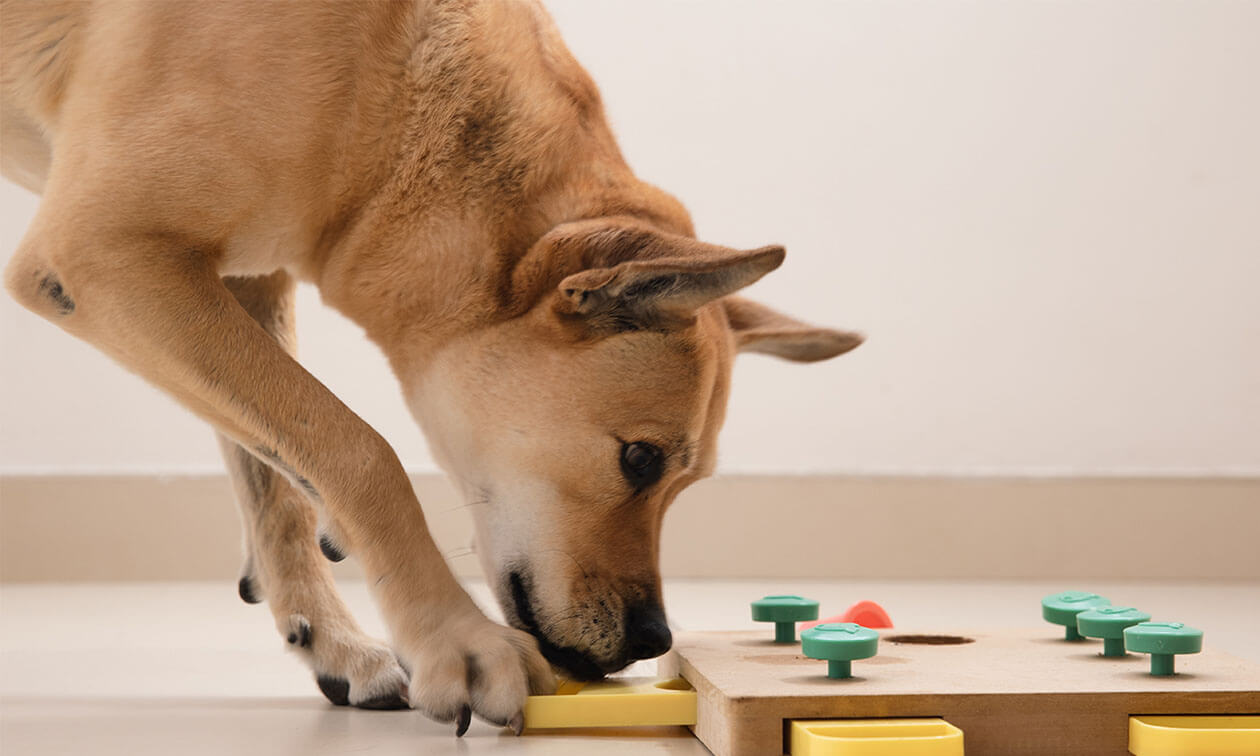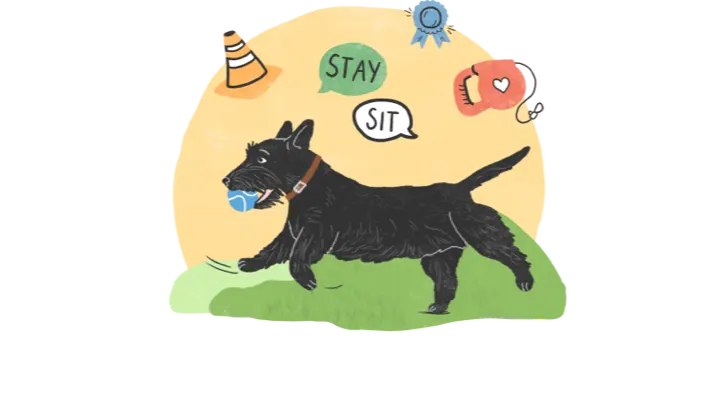As a responsible dog owner, it's essential to provide not only for your pup's physical needs, but also for their mental stimulation. Enrichment plays a crucial role in your puppy's overall well-being and development. Plus, it's easier than you might think to incorporate into your puppy's daily routine. With a few fun activities and some creative play, you can help your pup grow into a confident, calm, and curious companion.
Why Is Mental Stimulation Important for Puppies?
Puppies are highly curious and eager to learn about their environment. If their minds aren't adequately engaged, they may resort to undesirable behaviors such as excessive chewing, digging, or barking. Mental stimulation and enrichment provide an outlet for their energy, prevents boredom, and fosters a well-behaved and content pup.
Here are some of the key benefits of providing mental stimulation for your puppy.
Better Training
Mental stimulation helps puppies focus and improves their learning capabilities. By engaging their minds and "learning to learn," they become more receptive to training sessions and can learn cues and tricks more quickly.
Fewer Destructive Behaviors
Boredom is often the root cause of destructive behaviors, such as chewing on furniture or shoes. Keeping your puppy mentally stimulated provides an alternative outlet for their energy, reducing the likelihood of destructive habits or boredom behaviors.
Alternative to Physical Exercise
While physical exercise is important, younger puppies may not have the stamina for long walks or intense play. Mental stimulation games provide a way for them to burn energy without putting excessive strain on their developing bodies.
Physical exercise may be off the table as well if your dog ever is on crate rest after injury or surgery. They need somewhere for their energy to go, and brain games and enrichment are perfect for taking the edge off.
Reduced Anxiety
Mental stimulation can help reduce anxiety and stress in puppies. Engaging their minds distracts them from potential triggers and helps promote relaxation and better well-being.
Better Sleep
A mentally stimulated puppy is more likely to have a good night's sleep, just like humans. When their mind is tired from enrichment activities, they are more inclined to settle down and rest.
Brain Games for Puppies
With all this information, you might wonder what sort of mental stimulation works for puppies (and all dogs, for that matter).
Puzzle Toys and Interactive Feeders
Puzzle toys are fantastic mental stimulation for puppies. These problem-solving toys usually involve hiding treats or kibble inside compartments, requiring your pup to figure out how to retrieve the reward. Always start with simple puzzles and gradually introduce more complex ones as your puppy becomes more adept at solving them. This helps prevent frustration and giving up on puzzles, which makes it harder to use them later in life.
Food dispensing or stuffable toys are not only a fantastic source of mental stimulation but also a great way to slow down your puppy's eating. These toys are designed to release food or treats gradually, requiring your pup to work for their reward. They keep your puppy engaged and entertained for extended periods while providing mental exercise. However, they shouldn’t replace regular meals entirely. Remember treats should be less than 10% of your pup’s daily calories, and make sure your dog’s toys are an not too small because they could swallow them.
Licking and chewing on food-stuffed feeders, especially when they are frozen, helps with decompression and can also ease teething pain.
Nose Work
Your puppy's brain is connected to their sense of smell. It's how they "see" the world. Putting their nose to work with scent training or sniff walks are a fantastic way of burning excess energy and meeting a specific behavioral need your puppy has to explore via smells.
To play, start by hiding small treats or a favorite toy in a puppy-safe designated area of your home. Begin with easy hiding spots and gradually increase the difficulty as your puppy becomes more skilled. Encourage them to use their nose to locate the hidden object and reward them with praise and treats when they find it. This game promotes problem-solving, concentration, and confidence in your pup while providing a fun and interactive bonding experience for both of you.
Hide-and-Seek
Utilize your puppy's natural sense of smell by playing a game of hide-and-seek. Start by having your pup stay in one room while you hide in another room or behind furniture. Once hidden, call them to come find you. As they get better at the game, you can make it more challenging by hiding in different harder-to-find locations.
Agility and Obstacle Courses
Agility and obstacle courses are not just for experienced dogs; they can also be adapted for puppies. With your veterinarian’s sign-off, you can set up a mini-course using tunnels, hurdles, cones, and ground-level "jumps." This activity provides both physical exercise and mental stimulation as your puppy learns to navigate various obstacles. It also has the benefit of helping a puppy get better at movement and body awareness, which can help prevent injuries in the future.
Trick Training
Training sessions are an excellent opportunity to engage your puppy's mind. Use positive reinforcement techniques to teach them basic cues such as sit, stay, and come. All behaviors are tricks from your puppy's perspective. As they progress, introduce more advanced tricks like roll over or spin. Keep the sessions short and fun, just a minute or two at a time. You can even use a portion or all their regular meal as their training treats. Incorporating mental stimulation activities into your puppy's daily routine is a win-win for both of you. Not only will it provide an outlet for their natural curiosity and energy, but it will also lead to a well-behaved, content, and happier pup. Remember to combine mental stimulation activities with regular physical exercise to ensure a well-rounded lifestyle.
ZPC-04359



